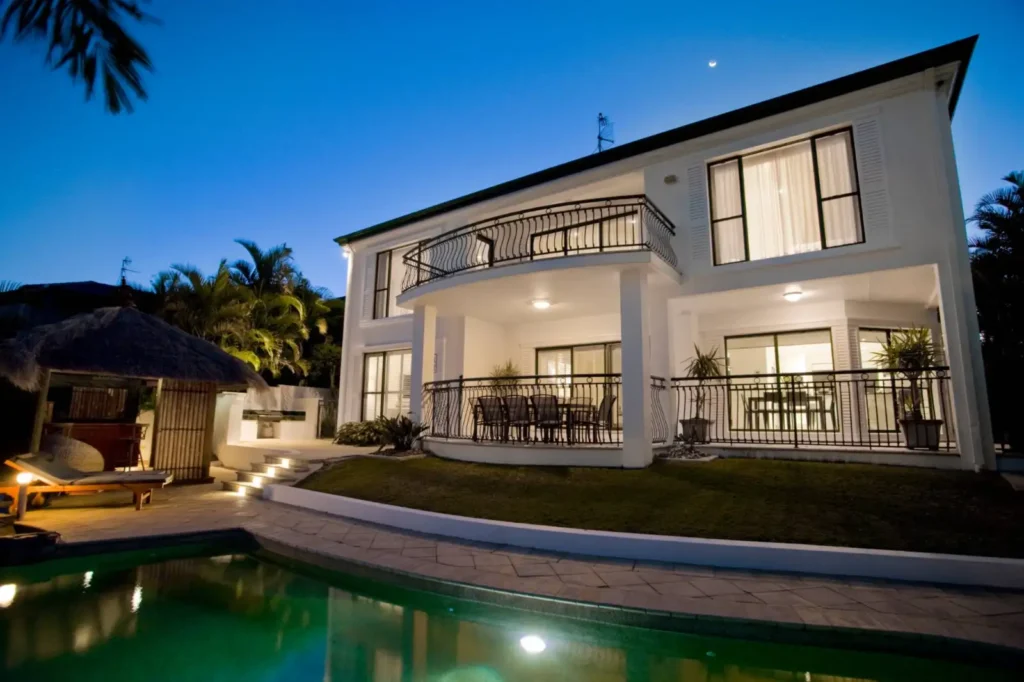Cash reserves are just one of the factors that are considered when a lender or lending professional reviews your application.
They generally don’t come into play for conforming mortgages (loans under a certain amount), which make up the vast majority of lending across the country. And because cash reserves are less common, they are not as well understood as other factors, such as credit score and debt-to-income ratio.
We’d like to help you understand cash reserves, especially for jumbo loans.
Everything You Need to Know About Reserve Requirements for Jumbo Loans
Cash reserves are simply untouched sums of money (or other properties, as we will discuss) held in a bank accounts. They are savings, essentially amounting to an emergency fund, that is held by the borrower.
Reserve requirements are generally measured as a certain number of monthly payments. For example, a borrower may be required to keep 12 months of reserve requirements for a jumbo loan. If the monthly payment (usually just the principle and interest) will be $10,000, the borrower would be required to have at least $120,000 in reserves.
This requirement is often called “cash reserves.” But it should be noted that cash held in a bank account is not the only asset that can be used for reserve requirements. Assets that could also meet reserve requirements for jumbo loans include retirement accounts, stocks, bonds, CDs, the cash value of an insurance policy, and funds in a trust, as well as other assets of significant value. Talk with your lending agent or an industry professional to see what assets can be applied to the reserve requirements.
What are the Reserve Requirements for Jumbo Loans?
If you are using a jumbo loan for your home purchase, there is a strong chance you will need at least some amount of assets in cash reserves. Exactly how much, however, can be hard to say. This is because different offices have different requirements for different programs. Not all jumbo loans, quite frankly, will have the same reserve requirements.
Also, personal factors impact the reserve requirements for jumbo loans. For example, a person with a higher credit score and low debt load, who statistically represents a lower risk to lenders, may be able to secure the loan with a lower reserve requirement than someone with low credit and numerous debts.
That said, you can expect roughly three months to a full year of reserve requirements for most jumbo loans. This, of course, represents a huge range. For smaller loan with lower reserve requirements, you may need less than $10,000. For larger loans with significant requirements, you could need hundreds of thousands. (Which is why using assets like retirement accounts and investments can help.)
We offer a variety of jumbo loan options that allow you to make the purchase with a minimal downpayment. This even includes certain options that allow you to take out a jumbo loan with no liquid reserves whatsoever.
In some cases, the nature of your work can also impact your reserve requirements. Self-employed individuals, or people who work in volatile industries (the cannabis industry, for example) may need more requirements.
Unfortunately, we can’t give a specific number on reserve requirements for jumbo loans. We can, however, say that if you work with our team, we’ll do everything in our power to ensure you get a loan that fits your needs, budget, and financial situation. We’ll help you find the low-reserves loan you require, and we’ll explain all the details so you can get approved quickly.
Why Low Cash Reserves in California are So Important
So far, we’ve basically talked about jumbo loans and cash reserves in a general, universal manner. Everything we have discussed so far applies to the entire country, not just the state of California.
So why are low reserve requirements so important, especially in our state?

Because of home prices.
California ranks as one of the highest-cost states in the country. According to World Population Review, California ranks #2 as the most-expensive state for home prices, sitting only behind Hawaii. This makes it the most expensive state in the continental United States. (This list excludes D.C., which on its own would be the most expensive.)
Of course, buyers in certain areas will have a need for larger loans. Redfin, one of the leading real-estate listing sites, says that the median sale price for homes in San Diego is $811,000. This means that half of all purchases are above this amount. Among 772 San Diego listings on their site (at the time of this writing) 181 were priced over $2 million. 99 were still above 3 million, and 49 properties were above $5 million. (Most were single-family homes.) This is just San Diego; the same trend will surely be seen in Los Angeles, Orange County, San Francisco, San Jose, and many other California cities and suburbs.
If home prices are high, this means loans will inevitably be high. And if the loans are high, generally speaking, the requirements, including reserve requirements, will be high as well. You’ll need a larger downpayment and you’ll likely need larger reserves.
If you are purchasing a California property and using a 30-year loan of, say, $5 million, your monthly payment will be somewhere around $20,000 to $25,000 a month. Let’s assume $23,000 for simplicity. If the jumbo loan requires a year of reserves (12 payments), you would need to demonstrate $276,000 in savings and assets. This can be tough for many people, even those who have large incomes.
However, if you can utilize a jumbo loan with lower reserve requirements, this could be significantly reduced. At six months, the reserve requirements would be $138,000. If only three months is required, you’d only need to show $69,000 in savings and investment accounts.
With the price of many California homes, you need every advantage you can get, including low reserve requirements for jumbo loans.
Contact our team today to learn more about reserve requirements.


